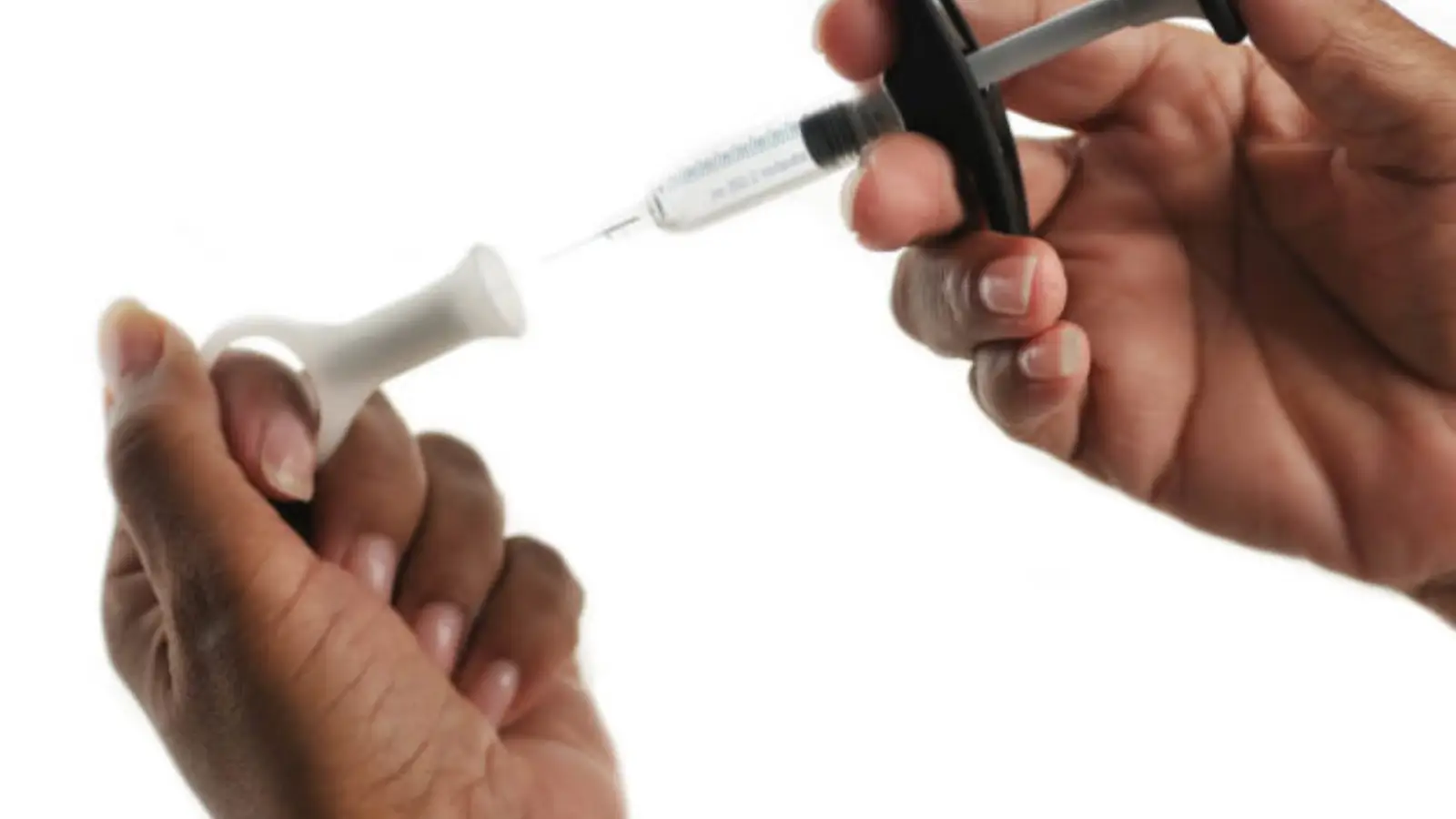
Biosimilar drugs have gained widespread recognition as cost-effective alternatives to biologic therapies. These medications offer comparable safety, efficacy, and quality to their reference products, making them valuable options for managing chronic inflammatory conditions. As biologic treatments continue to evolve, understanding the distinctions between brand-name biologics and biosimilars is essential.
Cimzia (certolizumab pegol) is a biologic medication specifically designed to treat inflammatory diseases such as rheumatoid arthritis and Crohn’s disease. Unlike biosimilars, Cimzia is a branded TNF inhibitor with a unique PEGylated structure that enhances stability and prolongs its therapeutic effect.
This article will explore Cimzia’s generic name, its active ingredient, and how it differs from biosimilars and other TNF inhibitors in composition and function.
Key Takeaways
- Cimzia contains certolizumab pegol, a PEGylated TNF inhibitor that effectively reduces inflammation in autoimmune conditions such as rheumatoid arthritis, Crohn’s disease, and psoriatic arthritis.
- Unlike other TNF inhibitors, certolizumab pegol lacks an Fc region, minimizing immune activation and lowering the risk of immune-related side effects.
- PEGylation extends Cimzia’s half-life, allowing injections every two to four weeks, compared to other TNF inhibitors that require more frequent dosing.
- By neutralizing TNF-alpha, Cimzia reduces joint swelling, pain, and stiffness, slows disease progression, and improves overall quality of life.
- While Cimzia carries risks such as infections and a potential malignancy risk, its Fc-free design may contribute to a lower incidence of immune-related complications than other TNF blockers.
About: Doctor Medica is your trusted supplier of top-quality dermal fillers, viscosupplements, and more for your medical practice. We offer genuine products from leading brands at the lowest prices. Contact Doctor Medica today to order Cimzia online.
Introduction to Certolizumab Pegol: Cimzia’s Active Ingredient

Certolizumab pegol is a tumor necrosis factor (TNF) inhibitor designed to reduce inflammation in autoimmune diseases. Unlike other TNF blockers, it is PEGylated, meaning it has a chemically attached polyethylene glycol (PEG) molecule that enhances its stability and prolongs its effects. This formulation makes using Cimzia for rheumatoid arthritis, Crohn’s disease, or psoriatic arthritis a highly effective treatment.
Unique Molecular Structure of Certolizumab Pegol in Cimzia
Certolizumab pegol stands out from other TNF inhibitors due to its Fc-free design, which minimizes immune cell interactions. Unlike TNF inhibitors such as Humira and Enbrel, which contain an Fc region that can engage immune responses, Cimzia’s Fc-free structure reduces unnecessary immune activation while still effectively neutralizing TNF-alpha. This unique feature lowers the risk of immune-related side effects while maintaining strong anti-inflammatory effects.
Key Structural Advantages
- Fc-Free Design: Minimizes immune system interactions, reducing the risk of certain immune-related side effects.
- PEGylation: Extends the drug’s half-life, allowing for less frequent dosing than traditional TNF inhibitors.
- Targeted TNF-Alpha Blockade: Ensures precise inflammation control, improving symptom relief and disease management.
Pharmacological Properties of Cimzia’s Active Component
Certolizumab pegol works by binding to TNF-alpha, a pro-inflammatory cytokine that drives joint inflammation and tissue damage in rheumatoid arthritis. By neutralizing TNF-alpha, Cimzia helps:
- Reduce swelling, pain, and stiffness in affected joints.
- Slow disease progression to prevent further joint damage.
- Improve mobility and quality of life for RA patients.
Its PEGylation significantly prolongs its presence in the bloodstream, allowing for flexible dosing intervals every two to four weeks.
Differences Between Certolizumab Pegol and Other TNF Inhibitors

Cimzia stands out from other TNF inhibitors due to its unique molecular design, dosing flexibility, and safety profile. Unlike traditional TNF blockers, it features pegylation for enhanced stability and lacks an Fc region, reducing immune-related side effects.
| Feature | Cimzia (Certolizumab Pegol) | Other TNF Inhibitors (Humira, Enbrel) |
| PEGylation | Yes (prolongs half-life) | No |
| Fc Region | Absent (reduces immune response) | Present |
| Dosing Frequency | Every 2-4 weeks | Weekly or biweekly |
| Use in Pregnancy | Considered safe | Often avoided |
Impact of Pegylation on Cimzia’s Half-Life and Efficacy
PEGylation plays a crucial role in Cimzia’s absorption, distribution, and elimination, enhancing its stability in the body. The PEG molecule slows the breakdown of certolizumab pegol, allowing for longer-lasting effects than non-PEGylated TNF inhibitors. This extended half-life helps maintain consistent therapeutic levels, reducing fluctuations in symptom control for rheumatoid arthritis patients.
A key advantage of PEGylation is the reduced need for frequent injections, which improves patient adherence. With sustained TNF-alpha inhibition, Cimzia ensures stable symptom relief over time. Many patients prefer Cimzia for its less frequent dosing schedule, which makes treatment more convenient while effectively managing inflammation and joint damage.
Safety Profile of Certolizumab Pegol in Cimzia
Like all biologics, Cimzia carries some potential risks and side effects. However, its unique molecular design reduces immune-related complications compared to other TNF inhibitors.
Common Side Effects
- Injection site reactions (redness, swelling).
- Mild infections (upper respiratory infections, urinary tract infections).
- Fatigue, headache, or nausea.
Serious but Rare Risks
- Increased risk of serious infections like tuberculosis.
- Potential reactivation of hepatitis B.
- Increased risk of malignancies with prolonged use.
Patient Selection Criteria for Treatment with Cimzia

Not all patients are ideal candidates for Cimzia. It is generally prescribed for:
- Moderate to severe RA patients who do not respond to conventional DMARDs.
- Those seeking a TNF inhibitor have a lower immune response.
- Patients needing a pregnancy-compatible RA treatment option.
Individuals with active infections, uncontrolled diabetes, or a history of malignancies should avoid Cimzia or speak to a healthcare professional first regarding their suitability for this treatment.
Clarifying Misconceptions About Biosimilars and Generics of Cimzia
Many people mistakenly assume that Cimzia has a generic equivalent. However, biologics are large, complex molecules derived from living cells, so they cannot be replicated precisely like traditional drugs. Instead, biosimilars—highly similar but not identical alternatives—are developed once the original drug’s patent expires. These alternatives undergo rigorous testing to ensure comparable efficacy, safety, and quality to the reference biologic.
The key difference between generics and biosimilars lies in their composition. Generics are exact chemical copies of brand-name drugs, while biosimilars closely resemble biologics but may have slight variations due to their complex production process. No biosimilar for Cimzia has been approved, meaning patients must continue using the brand-name formulation until an alternative becomes available.
Current Patent Status of Cimzia and Implications for Generics
UCB, the manufacturer of Cimzia, holds multiple patents protecting its formulation and PEGylation technology. These patents delay the entry of biosimilars into the market. Once the patents expire, biosimilar alternatives may become available, lowering treatment costs.
Potential Future Availability of Biosimilar Alternatives to Cimzia
As Cimzia’s patent expiration nears, pharmaceutical companies may develop biosimilar alternatives. These biosimilars would offer:
- Similar safety and efficacy at a lower cost.
- More accessible treatment options for patients with rheumatoid arthritis.
- Regulatory approval by agencies like the FDA and EMA to ensure quality.
For now, Cimzia remains the only certolizumab pegol-based biologic available on the market.
Conclusion
Cimzia, powered by its active ingredient certolizumab pegol, stands out as a highly effective TNF inhibitor for managing rheumatoid arthritis and other inflammatory conditions. Its PEGylated structure enhances stability, while its Fc-free design reduces immune-related side effects, making it a well-tolerated option for many patients. Additionally, its less frequent dosing schedule improves convenience and adherence.
While no generic equivalent or biosimilar for Cimzia currently exists, ongoing advancements in biologic medicine may lead to more accessible and cost-effective alternatives in the future. Until then, Cimzia remains a trusted and innovative treatment option for patients seeking long-term symptom relief and improved quality of life.
FAQs
1. Is there a generic version of Cimzia available?
No, Cimzia is a biological drug, and a generic version is not available. Unlike small-molecule drugs, biologics cannot be replicated precisely, meaning only biosimilar alternatives may be developed.
2. How does Cimzia differ from other TNF inhibitors?
Cimzia is unique because it is PEGylated and lacks an Fc region, which reduces immune-related side effects. This makes it different from other TNF inhibitors, like Humira and Enbrel, which have an Fc region that interacts more with immune cells.
3. How is Cimzia safe for pregnant patients?
Cimzia’s PEGylated structure prevents placental transfer, making it a safer option for pregnant women with rheumatoid arthritis. Other TNF inhibitors with an Fc region may cross the placenta, potentially affecting the baby’s immune system.
4. Will a biosimilar for Cimzia be available soon?
No biosimilar has been approved for Cimzia yet, but as its patents expire, pharmaceutical companies may develop biosimilar alternatives. These would need regulatory approval to ensure safety and effectiveness.
References
European Medicines Agency. (n.d.). Cimzia: EPAR – Product Information. Retrieved February 13, 2025, from https://www.ema.europa.eu/en/documents/product-information/cimzia-epar-product-information_en.pdf
Deeks, E. D. (2016). Certolizumab pegol: a review in inflammatory autoimmune diseases. BioDrugs, 30(6), 607-617.
Related Articles
Joanna Carr
Sunekos Before and After – With Photo Examples
Sunekos skin booster combines hyaluronic acid and amino acids to rejuvenate the skin, improving elasticity, hydration, and firmness.
Joanna Carr
Lanluma vs. Sculptra – Comparing Body Sculpting Treatments
Lanluma and Sculptra are both collagen-stimulating fillers designed for body contouring. Compare their mechanisms, longevity, and ideal treatment area...
Joanna Carr
Dysport: What Is It? Mechanisms and Clinical Applications
Experts use Dysport for facial rejuvenation, muscle spasticity, and hyperhidrosis management.


